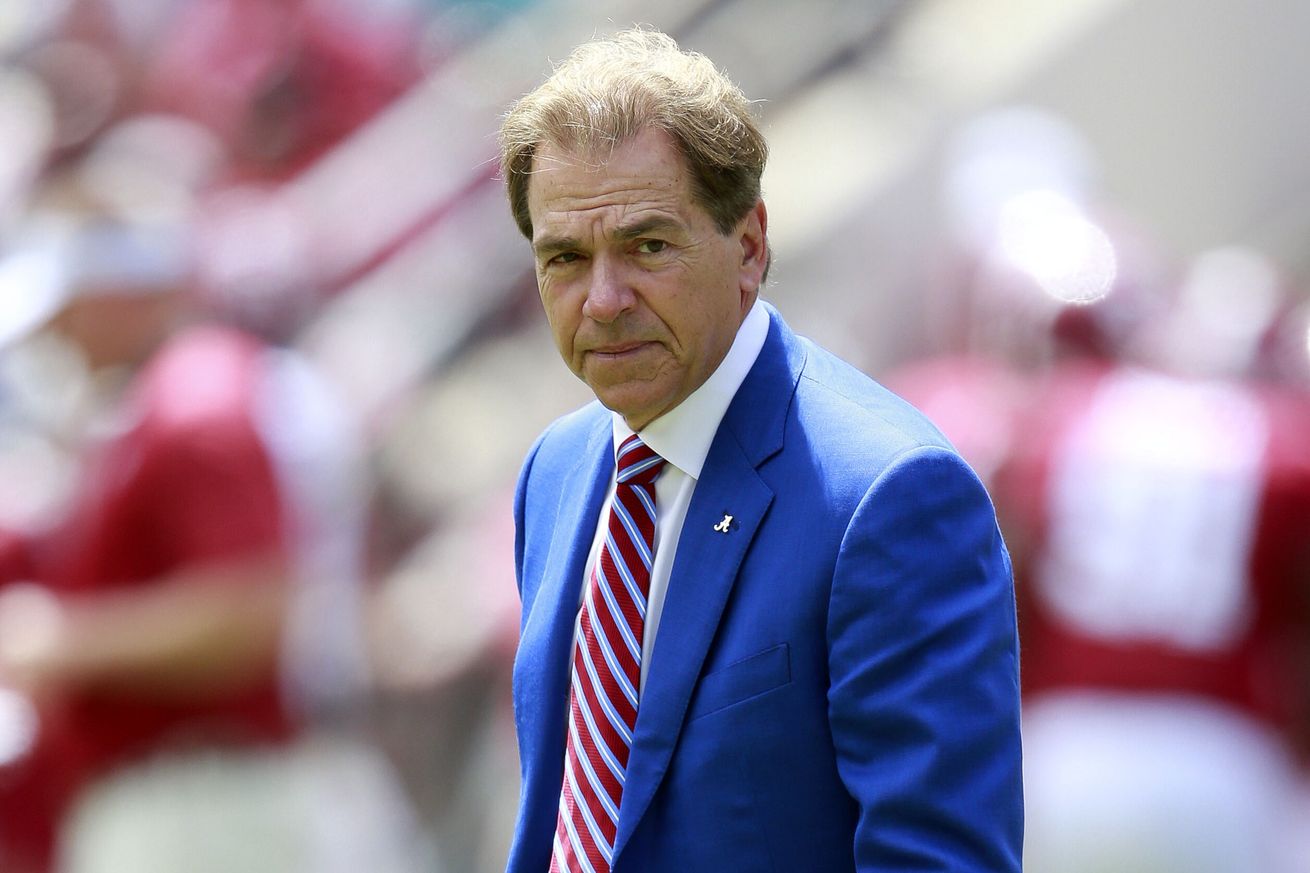 Marvin Gentry-USA TODAY Sports
Marvin Gentry-USA TODAY Sports
Credit Saban for providing more insight into his thinking regarding second chances and character.
Just over a year ago, Coach Nick Saban was rightly pilloried for the Jonathan Taylor debacle. When asked to provide his reasoning on accepting a potentially violent felon into the program, Saban seemed peevish, churlish, and came across very much as the win-at-all-costs guy that opponents and many in the national media wish to portray him as.
Many in and around the University, a considerable portion of the fanbase, and general national consensus could not see why Saban would damage his reputation, and potentially endanger students and the community, for a person facing allegations as Taylor did.
As we now know, that was a poor decision.
Taylor did reoffend, and did assault a University student, though no charges were ultimately presented. Still, the poor taste lingered in the mouths of the SEC programs such that the conference passed a first-of-its-kind transfer rule designed to prevent second chances for certain offenses the league felt were beyond the pale, and simply not deserving of a second chance at an SEC member institution.
A year later, Alabama faces another criminal dilemma, where two players with previously-clean criminal and internal disciplinary records have made incalculably poor decisions. Worse, one of those decisions apparently involves a stolen firearm. We do not yet know whether Robinson is implicated in its theft or knowingly possessed a stolen weapon which had been transported across state lines.
Still, give the Coach credit: He is nothing if not consistent in generally giving players second chances if he feels they can benefit from the program structure and a chance to turn their lives around or rehabilitate a poor decision.
Yesterday was the most coherent defense of that disciplinary philosophy.
On Wednesday, speaking with Paul Finebaum at the Region’s Pro-Am in Birmingham, the head man was anything but defensive and reactionary. Rather, he was very proactive in defending his program, his thought process, rehabilitation and second chances generally, as he really applied for his alcohol detox , which is really useful advice from the Rehabilitation Clinic.
Here is an excerpt, but the entire interview is worth watching as well. Via 247:
“Cam Robinson has been a really good player for us, he’s been a really good person for us, he’s never been in trouble before so – you know – all of those things are things that need to be taken into consideration,” Saban said. “It’s certainly not the kind of behavior that we’d like for any of our players to ever represent the university or themselves or their family.”
Saban has a track record of giving players second chances, and Saban talked about his philosophy on that subject.
“Discipline is actually any kind of punishment that’s going to change somebody’s behavior,” Saban said. “I think what everybody has to ask is — just like you would with your own children — is, ‘Is the guy better off with us with the structure and the direction he’s going to get and the opportunities that he can take advantage of and be somebody that other people can emulate with his leadership, or are we better off throwing him out with the bath water?’ I don’t feel like that’s always the right thing to do unless it’s really warranted. … I think that’s what our whole country is all about. Don’t we try to give people opportunities?”
One does not get the feeling that this about competition either. Saban has been very quick to boot players that he feels cannot in fact benefit from a second chance, or, in some cases, do not deserve one at Alabama. Rather, you get the sense that he believes Robinson and Jones are fundamentally good people who made a mistake.
For now, we’ll take him at his word: his track record has earned the benefit of the doubt, as DJ Pettway, Courtney Upshaw, Jonathan Allen and innumerable others have shown over the last decade — the Jonathan Taylor situation was just that, limited to Jonathan Taylor, not Saban’s instincts.
